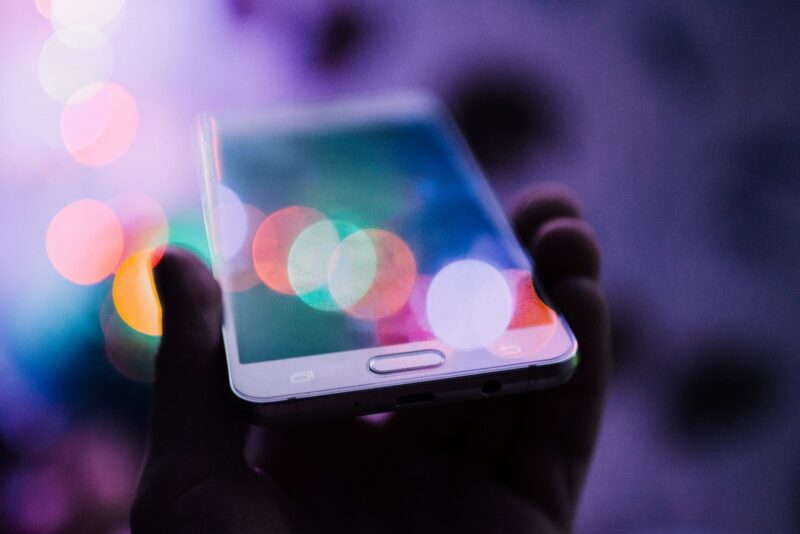We wake up to screens, work through screens, and unwind with screens. They keep us connected, informed, and entertained — but they also keep us on. Somewhere along the way, the digital world stopped being just a tool and started to feel like a demand.
When the constant buzz of information begins to erode your rest, your calm, and your focus, you may be experiencing digital overload — a subtle, cumulative state where your mind never really powers down.
Let’s explore how this shows up in three key areas of life: sleep, anxiety, and attention.
Sleepless but Wired
You might know the feeling: you’re exhausted, but your mind is still scrolling even after your fingers stop. You close your eyes, but snippets of headlines, messages, and to-dos replay behind your eyelids.
Digital overload often first announces itself at night. The stimulation from screens keeps the brain in a state of low-grade alertness, and blue light delays the release of melatonin, the hormone that tells your body it’s time to rest. The result? You toss and turn, fall asleep later, and wake up less restored.
Research consistently links high screen time to disrupted circadian rhythms and poor sleep quality. Even if you think you’re “used to it,” your nervous system isn’t. Over time, that restless mind before bed — or the habit of checking notifications the moment you wake — chips away at your ability to recover.
Sleep isn’t just downtime. It’s when the brain cleans house, processes emotion, and resets focus. When it’s compromised, everything else wobbles.
The Quiet Hum of Anxiety
The next signal is emotional — that subtle, wired-but-tired feeling that hums in the background of your day. You might notice yourself feeling easily irritated, tense for no clear reason, or mentally “on call” even during downtime.
Each ping, buzz, and banner notification primes the body’s stress response just a little. Over hundreds of micro-activations a day, your nervous system begins to normalize being on edge. That’s why digital overload doesn’t always feel like a panic attack — it feels like an ongoing restlessness you can’t quite shake.
Studies show that people who spend more hours on social media report higher anxiety, lower mood, and greater difficulty relaxing. The more we scroll, the more we unconsciously compare, react, and respond — often without realizing how much cognitive energy that costs.
Anxiety feeds on uncertainty, and the digital world never runs out of it. There’s always one more thing to check, one more opinion to consider, one more message waiting. The nervous system doesn’t know it’s “just a screen”; it only knows that it hasn’t had a break.
When Focus Starts to Fray
Perhaps the most insidious symptom of digital overload is how it erodes our attention. You sit down to work, and within minutes your mind wanders to your inbox, then to your phone, then to a quick scroll that turns into 20 minutes. You catch yourself, sigh, and try again — only to repeat the cycle later.
Cognitive research calls this switch cost: the mental toll of constantly shifting focus. Every time we bounce between tabs, apps, or conversations, the brain burns fuel to reorient. Over time, that effort compounds into fatigue, forgetfulness, and mental fog.
It’s not that our attention spans are getting shorter — it’s that they’re under siege. Our brains were built for depth, not for juggling ten digital streams at once. When that capacity gets stretched too thin, we start to feel scattered, unfocused, even detached from the things that normally matter to us.
The Cycle of Overload
These three domains — sleep, anxiety, and attention — don’t exist in isolation. Poor sleep makes anxiety worse. Anxiety disrupts focus. Lack of focus drives us back to our devices for quick hits of stimulation or distraction. The cycle loops endlessly until we notice that our sense of rest, clarity, and control has quietly slipped away.
Recognizing this pattern is the first step. Once you can see it, you can begin to change it — not by cutting technology out entirely, but by reclaiming a sense of rhythm and choice in how you use it.
Starting to Rebalance
Small changes can make a big difference. Try setting aside an hour before bed without screens to let your mind wind down. Keep notifications off for apps that don’t truly need your attention. Step away from your phone for five minutes every hour — just to breathe, stretch, or look out a window.
The goal isn’t to quit technology. It’s to stop letting it own your attention. When you make space for silence, rest, and intentionality, the fog of digital overload begins to lift — and what returns is something simple but profound: presence.








